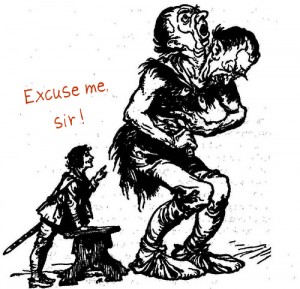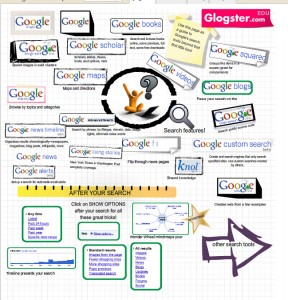Google’s Evolution of Search, my lament, and will a giant listen?

Tools and ideas to transform education. Sign up below.
You are now subscribed
Your newsletter sign-up was successful
When I watched Google’s recent video on the Evolution of Search, I found myself looking back nostalgically. But not in the way I was supposed to.
I realized that my goals for student inquiry and information seeking are different from Google’s goals for user question answering. That we see our end user’s needs differently. And that I miss the Google I used to know.
The celebratory Evolution video shares:
Google began as a research project in 1996.
Our goal is actually to make improvements to search, that just answer the user’s information need, get them to their answer faster and faster. so that there’s almost a seamless connection between their thoughts and their information needs and the search results that they find.
Among Google’s advances (the user doesn’t even notice that these improvements happen):
- page rank algorithm
- ensuring that ads were relevant and separate from other content
- the growing power and precision of image search
- 9/11 clarified the need for real-time search, the need to crawl news quickly and provide multiple points of view
- the richer media Web (around 2002) highlighted the need for Universal Search and the ability to combine apples (Web pages) and oranges (images) and the development of relevance for mixed media.
- Google Instant and its intuitive search-before-you-type suggestions. We want users to come to Google and get the information as quickly as they possibly can with Instant. You don’t have to type in your full thought.
- When do you need a specific bit of information, Google tries to provide you exactly that using our Quick Answers. For example take sports scores . . . you want to know “how tall is the Empire State Building?
- Search by image you can actually use that image as an input for the search.
- Users need much more complex answers. My dream has always been to build the Star Trek computer. In my ideal world, I would be able to walk up to a computer and say “Hey, what is the best time for me to sow seeds in India, given that monsoon was early this year?
The thing is, we are not always looking for answers. That goes for learners of all ages. The old tools–those we found on the left panel and in more and in even more and in labs–allowed us to go beyond vertical search to understand a little about how knowledge is structured. They allowed us to sort results in powerful ways. They allowed us opportunities to visualize search; to get a basic sense of metadata; to see patterns, chronologies, and relationships; to better discover new vocabulary and context.
Tools and ideas to transform education. Sign up below.
So, I continue to mourn the loss of Wonder Wheel, Directory, Newstimeline, Google Squared, Google Sets, FastFlip, the + operator, Google Labs itself, and most recently the Timeline that appeared in the left après-search search option panel. (Yes, I know I can set a custom time range, but I miss automatically generating a lovely bar graph that displays historical context. And yes, I know I can use the new Verbatim tool too.)

I also mourn the recent hiding of Advanced Search under the gear. Advanced Search allows users greater, and easier control over their results.It is no longer discoverable and I don’t think most non-librarian types will bother to locate it.
Please understand that I am usually the first kid on the block to embrace change, the first kid on the block to teach and model resilience. But. when I look back at Google’s evolution, I see 2009 and 2010 as golden Google years for inquiry, and for developing a better understanding of search--a couple of years when Google demonstrated true faith in the non-novice searcher.
I think we lost a lot these past two years, but . . .
Who am I to make a suggestion? I am merely a little David in the face of (hopefully friendly) Googliath.
I could not live without Google search and Google Apps. And I look forward to the future of search.
But I miss the ways I used to use Google as a teaching tool to help learners understand the power they have over their results. Some of the new features do some of that work, but I want my learners also to understand the structure of their information world.
I suppose what I really want to see is SGoogle–a Google that is not merely for answer seeking, but for inquiry–a Google flexible enough to present, to those who are interested, opportunities to manipulate and learn about the information landscape.
I have no slingshot. I don’t want one.
I am but a little blogger with a little voice hoping that a friendly giant might be listening.
I know that the giant has lots of other giant business to take care of, but . . .
My guess is there are many other Davids out there.
Image credit: Adapted from Sprat Mackrel. “I Was Kidnapped by a Giant.”
Joyce Valenza is the Teacher-Librarian at Springfield Township High School, author, and technology advocate. Read her SLJ NeverEndingSearch blog here.
